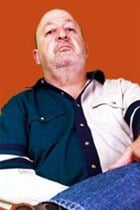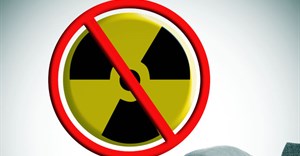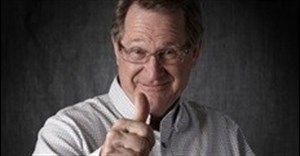
Subscribe & Follow
Jobs
- SEO and Content Creator Intern Cape Town
- Media - Sales Manager - Digital or Broadcasting Exp Essential or Both Johannesburg
- Content Creator Cape Town
- Head of Performance Marketing South Africa
- Journalist Intern Johannesburg
- Acount Manager Johannesburg
- Senior Media Sales Executive - OOH Johannesburg
- Multi Media Journalist | South Coast Sun Durban
Are we on the same planet?
I have just returned from the United States. Doom and gloom? Not so much. When you've had a good break, there always comes a time when it's enough. And everything back home seems to be enveloped in a rosy glow. But a week later, holiday is forgotten and I'm left wondering just why I felt the need to get back to the grindstone.
Hmmm, different perspectives and contrasts! Let's consider the contrasts between South Africa and that bastion of the commercial world and capitalism. Perhaps societies evolve at different rates, and cultures adopt differing beliefs, interests, conversation and practices depending on their socio-political environments. I'm not sure, but I am sure of the fact that apart from a bit of language, there is very little that would bind these two societies together.
A simpler solution
Now I'm a media guy, so let me start off by looking at this sector. Electronic media packages are the way in which people stay connected. In New York or Alaska, you can buy an equivalent of DStv, as well as internet, home phone and mobile services in one package from one supplier. There are only four or five major players and a couple of smaller ones. It makes life a lot simpler.
And so are newspapers. USA Today - freely available in hotels, but otherwise paid for - circulates around 3.3 million copies a day. Some 1.8 million are paper, 1.5 million are digital. So while there is a massive digital off-take, there are also 35 local editions that have been launched by this huge national product. Remember, all media pundits are saying local papers are the future. And USA Today has adapted very successfully. Here (in South Africa)? No digital success for anybody, really.
Now listen to this
Radio? The choice there is endless, and not only on FM. The AM band is also jam-packed with listening options: contemporary, pop and talk formats. There is jazz, gospel, country, blues, news and religion, on multiple stations. And no massive footprints. If you are driving, it could be less than an hour and you will have to retune to the next town or city's options. Also, they are all incredibly well supported by local advertisers, particularly car dealers. Listening to the radio, you'd believe there are a few dozen car dealers in a town the size of Butthole, Arizona.
But it's the content too that makes this a different world. Nobody gives a continental 'F' about central government. It gets one minute, if that, in the news. It's what's going on in your state, city or town that matters. And it's more or less 90% good news. A new hospital or factory. Fabulous school results, new roads. No Julius Malema, rape, murder, Aids, Jacob Zuma, corruption or absolute incompetence stories. And I hear cries from the Safricans: "What? Don't tell me there's no crime? There's crime everywhere!"
The difference effective policing makes
Sure there is. But there is at the same time an effective police force. Criminals get caught. And because of that there's an incredibly low crime rate almost everywhere there. Where I was in Montana, they were going through really strongly contested local elections and you couldn't tell the difference between Republicans and Democrats. In Montana, they're both just slightly right of Attila the Hun in their outlook. All advocate no gun laws, compulsory haircuts for men and loose clothing for women. But unlike South Africa, which was having an election at the same time, not one radio, press or TV report contained the words violence, intimidation, apathy or protests. Tells you something, doesn't it?
It's no secret I really love the US. When people ask me why, invariably my answer is "because everything works". People, services, utilities. Everything works. So I have to end this musing by going back to the very beginning and wondering what exactly I was missing when I started yearning for home? I think both tangibles and the obscure. Both the rational and irrational.
So on the one hand it's easy to define - my kids, grandkids and dogs. My mates and my bed. Familiar food and accents I can understand. On the other the not-so-easy to explain. Things like work and routine. A TV guide I understand. Rugby. Afrikaans and Zulu voices. Restaurants I know. My own car. Driving on the 'right' side of the road. 702, Sunday Times and SABC. Local is pretty lekker.
Ja, it's good to be back.

About Harry Herber
Harry Herber has a passion for delivering on promises and an attitude that demands that The MediaShop 'goes the extra mile'. With a BA in Classics and Anthropology behind him, Harry plunged into the media industry in 1975. Under Harry's leadership, The MediaShop has earned numerous client awards. He believes in added value for clients. Contact details: email: az.oc.pohsaidem@rebreh.yrrah.






















